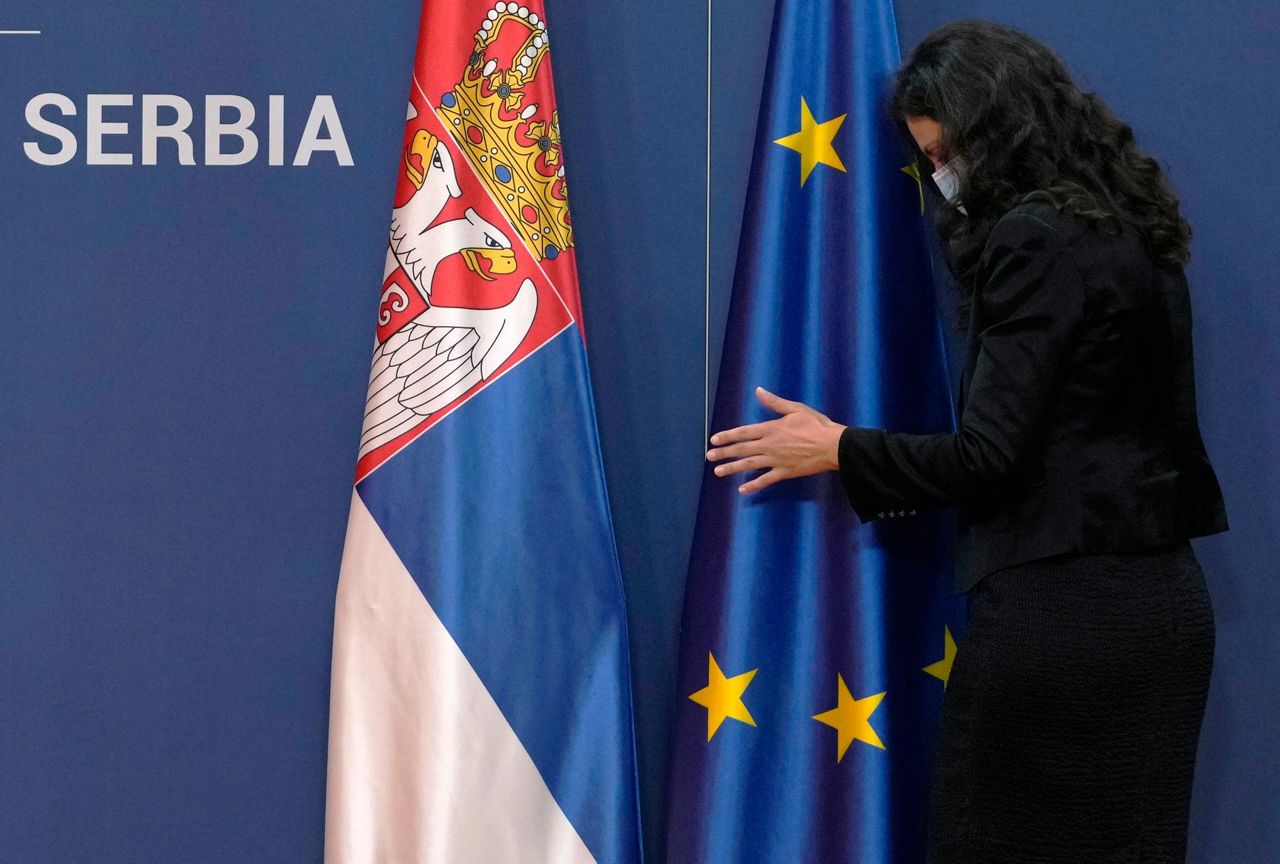BRUSSELS (AP) — Serbia on Tuesday took a significant step forward in its quest to join the European Union by opening talks on a series of policies linked to the environment, but Belgrade was warned that progress on its European path still depends on normalizing relations with its former territory, Kosovo.
Countries wanting to join the 27-country EU must bring their laws and regulations into line with the bloc’s standards. That’s achieved by negotiations in 35 policy areas, or chapters, ranging from things like the free movement of worker, to taxation, or agricultural and economic policy.
On Tuesday, Serbia was permitted to open talks on climate change and environment, energy, transport policy and trans-European infrastructure networks. Belgrade has now opened 22 negotiating chapters since its membership talks began in 2014. It’s the first time Serbia has opened four chapters at once.
Serbian Prime Minster Ana Brnabic told reporters in Brussels that the move marks “a very important milestone for our European integration process.”
EU Enlargement Commissioner Oliver Varhelyi agreed that “Serbia is taking another very important step forward in joining the European Union.”
But Varhelyi said that “Serbia’s progress on the rule of law and the normalization of relations with Kosovo remains essential for the overall pace of accession negotiations,” and he warned that it is “crucial that Serbia continues to deliver results on the ground.”
Serbia, supported by its allies Russia and China, refuses to recognize the statehood of its former province, which unilaterally broke away and declared independence in 2008. Kosovo is recognized by the United States and most of the West, although five EU countries do not.
EU-brokered talks between the two are bogged down. In September, Kosovo’s government deployed special police forces to border crossings to impose a new rule of removing Serb license plates from cars coming into the country, until a deal was reached to ease tensions.
Copyright 2021 The Associated Press. All rights reserved. This material may not be published, broadcast, rewritten or redistributed without permission.




